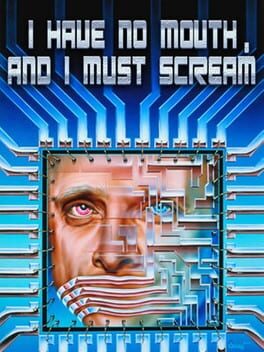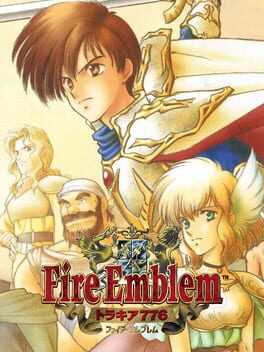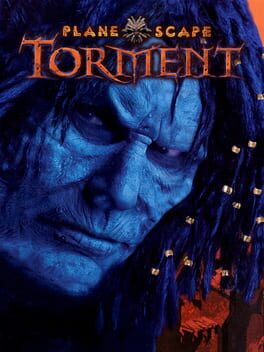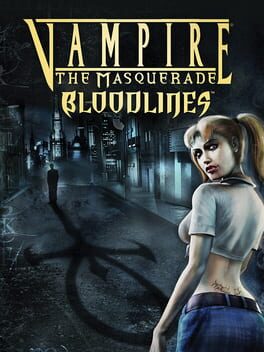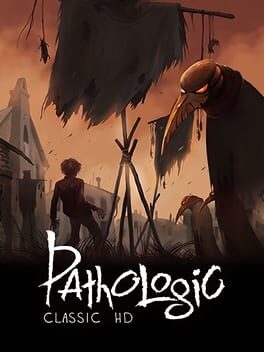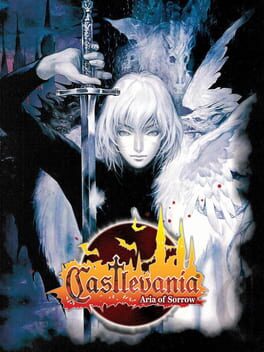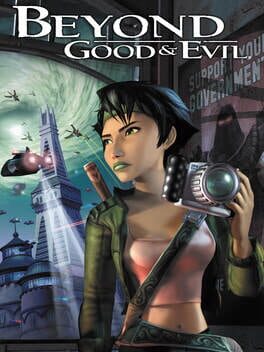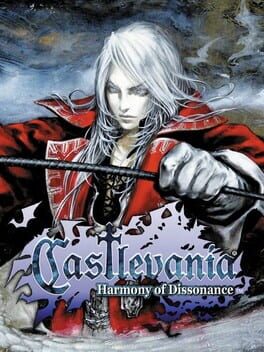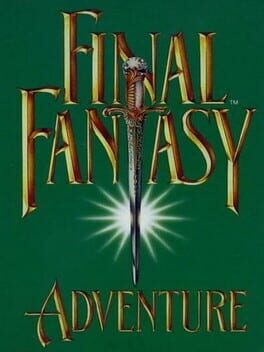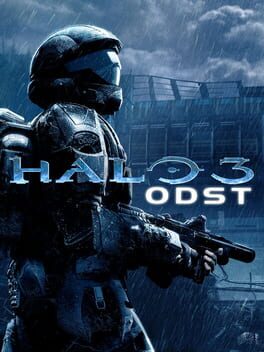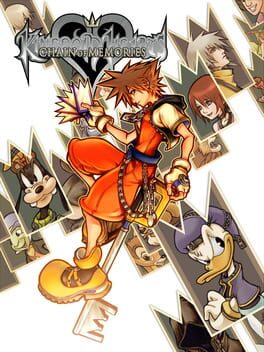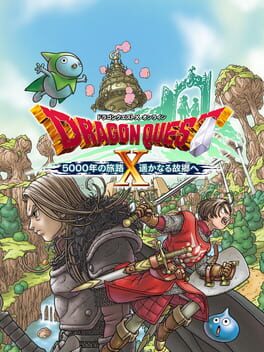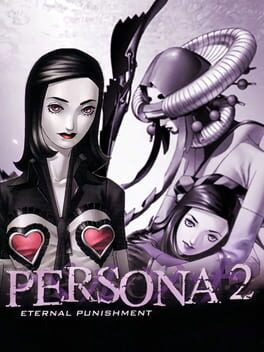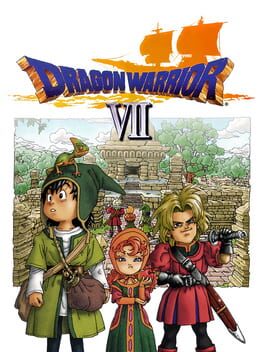cosmokk
4 reviews liked by cosmokk
Final Fantasy X
2001
This review contains spoilers
This game is like kojima giving fans everything they want but crossing his arms and doing it angrily. Oh? Oh u want to play as solid snake again? U thought raiden was lame? Ok, here, you’re snake and he’s old and lame and has back problems and raiden is a badass lightning ninja cyborg now. Remember snake’s girl from mgs1? Poopy pants Johnny just married her. He’s not as good at sneaking as u are, player, but he is nice. It’s no accident that every other character ends the game dancing and chilling at a wedding together and snake/player is wasting his short remaining days being exposited to. Spending more and more time being stuck within the metal gear story, milking and draining every bit of information from it until eventually the player hates it. The game gives you fanservice the same way eating lasagna every meal for every day wil give u lasagna poisoning. I feel it’s a critique of the culture where everything is theorized and discussed and answers for every mystery are demanded. The game’s so stuck within itself that every boss is a remix of an old one. You literally press x to see pictures of whatever metal gear moment this scene references. I’m not qualified at all to talk about meta commentary and stuff but there’s a part in this game where snake asks why they kept big boss’ body alive. She says “because people need their hero to stay forever” and looks directly at the camera. I don’t think it’s really an avoidable topic when discussing this game.
I love Kojima but this is prob his most flawed dialogue and exemplifies a lot of problems I have with his later games stories. This and peace walker are the only mainline mgs games I’ve never replayed. There’s obviously too many cutscenes and the gameplay segments are mediocre after the first act. The game’s psych meter system is an interesting concept to shift the physical health first aid care system from mgs3 to mental health and make it more about ptsd, but it does quite literally nothing with it. The therapist character on your codec doesn’t even give you therapy she just says to wait in the corner until ur stress level goes down. Or says some shit like “the boss you’re fighting, unhappy armadillo, is unhappy. According to psychology, this is caused by lack of happiness. Good luck snake.” The bosses are terrible and the boss roster themselves have no personality (unless you like their wattpad trauma backstory that is omnisciently told to you by the gun merchant after you beat them) which is such a downgrade from every other game’s boss rosters, every single one of which I would have a drink with. I don’t even drink but I would defile my sacred mouth with the poison that is alcohol just to make fatman or sniper wolf or the pain happy. But there’s much to appreciate with what this game does.
“Don’t waste the life you have left fighting”
=
“Stop playing this video game 😡”
Maybe I’m completely illiterate or I’m projecting but my interpretation is valid and yeah. Also the ray fight and the ocelot fight are amazing. The end. Sry for the serious review.
I love Kojima but this is prob his most flawed dialogue and exemplifies a lot of problems I have with his later games stories. This and peace walker are the only mainline mgs games I’ve never replayed. There’s obviously too many cutscenes and the gameplay segments are mediocre after the first act. The game’s psych meter system is an interesting concept to shift the physical health first aid care system from mgs3 to mental health and make it more about ptsd, but it does quite literally nothing with it. The therapist character on your codec doesn’t even give you therapy she just says to wait in the corner until ur stress level goes down. Or says some shit like “the boss you’re fighting, unhappy armadillo, is unhappy. According to psychology, this is caused by lack of happiness. Good luck snake.” The bosses are terrible and the boss roster themselves have no personality (unless you like their wattpad trauma backstory that is omnisciently told to you by the gun merchant after you beat them) which is such a downgrade from every other game’s boss rosters, every single one of which I would have a drink with. I don’t even drink but I would defile my sacred mouth with the poison that is alcohol just to make fatman or sniper wolf or the pain happy. But there’s much to appreciate with what this game does.
“Don’t waste the life you have left fighting”
=
“Stop playing this video game 😡”
Maybe I’m completely illiterate or I’m projecting but my interpretation is valid and yeah. Also the ray fight and the ocelot fight are amazing. The end. Sry for the serious review.
Kaga: It’s not a big problem if some of your characters die in Fire Emblem; I want each player to create their own unique story. Don’t get caught up trying to get a “perfect ending.” Have fun!
Fire Emblem’s synthesis of two core ideas - RPG elements and permadeath - work together as a powerful combination for creating unique experiences. Different units will grow in different ways and between the dicerolls and each player’s personal preference, they’ll end up with armies that look and function largely differently from each other. Throwing an extra curveball in this is permadeath, as poor planning or just plain rotten luck can lead to favourite units dying and being unavailable for the rest of the game, with the consequence usually being to try training a new unit - likely one you didn’t have much attachment to in the first place - bringing further diversity as well as a new story to tell.
Thracia 776 is by far and away the best Fire Emblem game at creating these emergent stories. The first reason is that it’s easily the most freeform game in the series for a number of reasons. Stat caps are fairly low and growths can be boosted by holding Crusader Scrolls, letting just about any character be endgame-viable if you want to put the work in as well as making it easier to train up a new unit to recover from a particularly crushing loss. Other factors like skills, personal weapons, movement stars and FCM, as well as the fabled movement growth, keep everyone feeling unique and give you something to get attached to. All these tools bring the gameplay to feel incredibly open - while Thracia has a well-earned reputation as the “staff game”, as status staves are just as hilariously overpowered as they are hilarious to use, it’s more just the most easily-observable result of this. The game gives you so many powerful tools - between items like insane personal weapons and staves, as well as mechanical tools like Canto and infinite trading - that there’s so much individuality and expression in how you approach a chapter or weasel yourself through tight situations, which is only compounded by how uniquely any one person’s army is going to fall together. Fatigue seems like it would take away from this uniqueness by forcing everyone to use most of the characters across the game, but it makes each chapter’s potential difficulty and solution vary even more depending on when you have access to your strongest units.
The second is its tendency towards surprises, and though the aforementioned movement stars and movement levels, as well as the tendency of crits to skew heavily in your favour, all play into this, its more interesting display is shown through its chapter design. Thracia’s design mentality would be absolutely aggravating in any other game, as each chapter aims to properly convey the situation that Leif’s army finds itself in - this means it often puts you in heavily disadvantageous positions and loves to throw heavy curveballs at you as the chapters’ stories advance and the opposition’s own plans advance alongside yours. What makes this feel reasonable in Thracia is the sheer strength and number of tools you have to navigate around these tricks. They will catch you off guard - and likely steal some of your soldiers away from you - but they rarely felt outright unfair, instead feeling like I could have prepared better, or could have played better. Chapters often feel like real opponents constantly trying to keep you on your toes, and while it’s crushing to lose a strong unit to something you didn’t expect, the stakes make it even more satisfying to defy the odds.
Its story compounds those themes held up by the gameplay, as while the broad strokes involve the reclamation and unification of an entire country, the details focus on the people of the story, their victories and losses, their choices and resulting consequences, their perseverance or lack thereof. Leif’s inexperience leads him to struggle to lead the Liberation, making multiple brash mistakes that set back his goals and get those close to him killed, as he stumbles forward in pursuit of a personal goal that almost none of the other fighters can even relate to, all while being overshadowed by the fighters beyond the borders. It’s his perseverance, in spite of all his losses and heartbreak, that leads him to eventually recapture Munster from the Empire. Just as Leif’s own quest is imperfect, the game expects yours to be, as not only can multiple events only be seen with certain characters kept alive, but small details change when certain characters *die* - Leif can even fail to achieve his own strongest motivation if the right mistakes are made. Why bother implementing these, if not for these losses being an expected part of the experience?
After all, if everyone’s story was perfect, nobody’s story would be unique.
Fire Emblem’s synthesis of two core ideas - RPG elements and permadeath - work together as a powerful combination for creating unique experiences. Different units will grow in different ways and between the dicerolls and each player’s personal preference, they’ll end up with armies that look and function largely differently from each other. Throwing an extra curveball in this is permadeath, as poor planning or just plain rotten luck can lead to favourite units dying and being unavailable for the rest of the game, with the consequence usually being to try training a new unit - likely one you didn’t have much attachment to in the first place - bringing further diversity as well as a new story to tell.
Thracia 776 is by far and away the best Fire Emblem game at creating these emergent stories. The first reason is that it’s easily the most freeform game in the series for a number of reasons. Stat caps are fairly low and growths can be boosted by holding Crusader Scrolls, letting just about any character be endgame-viable if you want to put the work in as well as making it easier to train up a new unit to recover from a particularly crushing loss. Other factors like skills, personal weapons, movement stars and FCM, as well as the fabled movement growth, keep everyone feeling unique and give you something to get attached to. All these tools bring the gameplay to feel incredibly open - while Thracia has a well-earned reputation as the “staff game”, as status staves are just as hilariously overpowered as they are hilarious to use, it’s more just the most easily-observable result of this. The game gives you so many powerful tools - between items like insane personal weapons and staves, as well as mechanical tools like Canto and infinite trading - that there’s so much individuality and expression in how you approach a chapter or weasel yourself through tight situations, which is only compounded by how uniquely any one person’s army is going to fall together. Fatigue seems like it would take away from this uniqueness by forcing everyone to use most of the characters across the game, but it makes each chapter’s potential difficulty and solution vary even more depending on when you have access to your strongest units.
The second is its tendency towards surprises, and though the aforementioned movement stars and movement levels, as well as the tendency of crits to skew heavily in your favour, all play into this, its more interesting display is shown through its chapter design. Thracia’s design mentality would be absolutely aggravating in any other game, as each chapter aims to properly convey the situation that Leif’s army finds itself in - this means it often puts you in heavily disadvantageous positions and loves to throw heavy curveballs at you as the chapters’ stories advance and the opposition’s own plans advance alongside yours. What makes this feel reasonable in Thracia is the sheer strength and number of tools you have to navigate around these tricks. They will catch you off guard - and likely steal some of your soldiers away from you - but they rarely felt outright unfair, instead feeling like I could have prepared better, or could have played better. Chapters often feel like real opponents constantly trying to keep you on your toes, and while it’s crushing to lose a strong unit to something you didn’t expect, the stakes make it even more satisfying to defy the odds.
Its story compounds those themes held up by the gameplay, as while the broad strokes involve the reclamation and unification of an entire country, the details focus on the people of the story, their victories and losses, their choices and resulting consequences, their perseverance or lack thereof. Leif’s inexperience leads him to struggle to lead the Liberation, making multiple brash mistakes that set back his goals and get those close to him killed, as he stumbles forward in pursuit of a personal goal that almost none of the other fighters can even relate to, all while being overshadowed by the fighters beyond the borders. It’s his perseverance, in spite of all his losses and heartbreak, that leads him to eventually recapture Munster from the Empire. Just as Leif’s own quest is imperfect, the game expects yours to be, as not only can multiple events only be seen with certain characters kept alive, but small details change when certain characters *die* - Leif can even fail to achieve his own strongest motivation if the right mistakes are made. Why bother implementing these, if not for these losses being an expected part of the experience?
After all, if everyone’s story was perfect, nobody’s story would be unique.
3 lists liked by cosmokk
